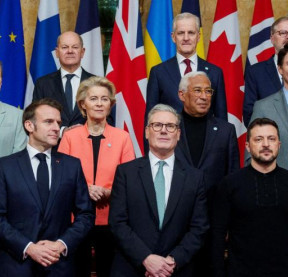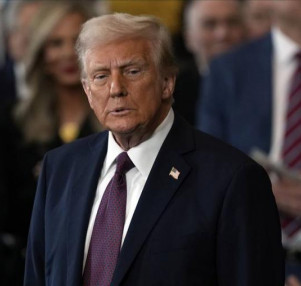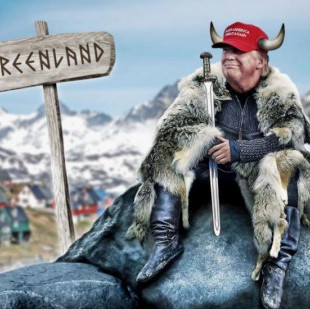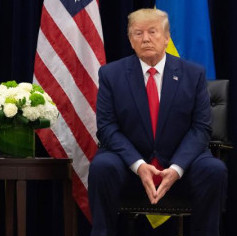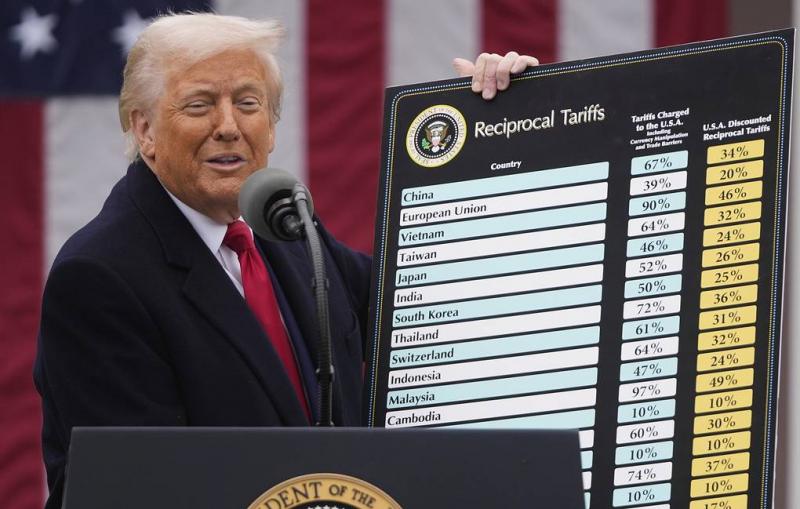
Over the past few years, Europe has been "trailing" the United States, demonstrating commitment to its course and imposing sanctions against China after them. As a result, it has gotten embroiled in a tariff war with China. Moreover, all of this happened at a time when China became the bloc’s major trading partner, outperforming the United States in this regard. The latest act of this trade war occurred very recently, in October 2024, when Brussels imposed 45-percent tariffs on Chinese e-vehicles in addition to the ten-percent standard ones.
Prior to their introduction, anti-subsidiary investigations were also launched in China against dairy products, pork, and plastic from the EU as a preventive means against the upcoming duties. Before making the decision, China suspended these investigations as a sign of goodwill. But it didn't cut no ice with European officials, with the lobby of the European automobile industry (the French, not the German) turning out stronger than cheese, cognac and meat producers. And in the end, as Hungarian Prime Minister Viktor Orban stated, "the EU is moving towards an economic cold war" with China. Notably, while Chinese competition damages a number of segments in the European market, other sectors and countries benefit a lot from cooperation with China. For example, the PRC is making major investments in the Spanish economy, particularly lithium battery production, as well as in the "green economy" of Ireland and many other EU countries. China is not only an essential importer, but also a vast market for EU products. First on the list is Germany as 2024 saw it export 89.937 billion euros worth of goods to China, and France is the runner-up with its 23.885 billion euros.
But then, there came Donald Trump came with his new foreign economic strategy priorities of eliminating trade deficits and restoring "fair" trade relations. In the trade war that has begun, protective moves against the countries having the largest trade deficit with the United States, including China and the EU, have come to the fore. For one, Trump imposed 25-percent tariffs on aluminum, steel, cars, light trucks, and auto parts manufactured abroad, including in the EU. And on April 2, he announced that the US government would impose customs duties on imports from 185 countries, with the European Union facing a 20-percent rate.
As a result, the bloc has found itself waging a tariff war on two fronts — with China and the United States. Both are much richer than Europe. The United States is the world’s richest country, and Chinese economy is the only one able to compete with it in size and power. Besides, Europe will have to pay for the conflict in Ukraine to a much greater extent than the United States and China. Energy prices in the EU have gone off scale, which implies further loss of competitiveness. Inflation in Europe is higher than in the United States or China. And under these circumstances, the European Commission leadership and the bloc’s leading member states have announced extensive plans for rearmament (800 billion euros for the EU, 500 billion for Germany). At the same time, after aligning the trade balance with the United States, the surplus ($235.6bn in 2024) will plunge, and the trade gap with China ($400bn) will be at least preserved. The outcome is going to be a sharp trade balance deterioration. A growing number of Europeans have been wondering if their governments have chosen the right policy and if it would have been better to follow China. In addition, there is a risk that the United States and China may thaw their relations at the expense of Europe.
And what about the EU leadership? In response to Donald Trump's tariffs on steel and aluminum, the European Union has retaliated to affect up to 26 billion euros worth of American goods, which is compliant with US tariffs on European exports. At the same time, it has yet to name specific moves in response to other US duties, calling for negotiations on their abolition and threatening retaliatory steps if those fail. Apart from that, Ursula von der Leyen actually called on Washington to join forces in trade war against China, saying she agreed with the US president that "other" countries were allegedly using the global trading system shortcomings against the West, and urged them to combat this together.
But assessing chances of an agreement, I would like to note that actions by the US president rather indicate his principled conviction in Brussels' conscious desire to deceive the United States, which only exacerbates his distrust of the European Union. Moreover, Trump's indignation at the current state of trade relations between the EU and America is understandable. In 2024, the US trade deficit with the EU amounted to over $235bn, which is 12.9 percent higher than a year ago. There is also an asymmetry in the amount of import duties. EU countries charge an average 5-percent tariff on American goods, and the US charges a mere 3.3 percent on European ones. The asymmetry is even greater for a number of product groups. The EU has a 10-percent duty on car imports –— four times more than the United States. According to Trump, it is the persistent year-long deficit in US foreign trade that prevents the country from increasing production capacity, undermining critical supply chains and making the US military-industrial complex dependent on foreign rivals. So, the feasibility of such an agreement is truly low.
At the same time, cooler relations between the United States and the EU feature an excellent opportunity for China to support Europe in its disputes with the Trump administration, thus restoring Sino-European trust. Beijing has been seeking to take advantage of the split in the West and boost its ties with the EU. Europe has been also taking minor steps along the track. Thus, February 3, 2025 saw EC President Ursula von der Leyen tell European diplomats that the EU could move closer to China in an "era of hypercompetitive and hypertransactional geopolitics." And on March 24, 2025 Spanish Foreign Minister Jose Manuel Alvarez urged the EU to develop its new attitude towards China, non-reliant on the United States.
But will Brussels and Beijing manage to agree on a compromise? There are many politicians in Europe hopeful to convince Washington to change its course. As French President Emmanuel Macron stated, the United States will not be able to simultaneously wage a double-front trade war with China and Europe, implying that if the United States wants to win the competition with China, it needs cooperation with Europe. Speaking about this kind of cooperation, Mathias Döpfner, Board Chairman and CEO of Axel Springer (the well-known Politico outlet’s parent company), called on the United States and the EU to abandon the tariff hike race, unite, and agree on higher duties on Chinese imports, developing a transatlantic trade strategy and starting joint negotiations with China so as to stop unfair practices and create a trade architecture in which the United States, instead of receiving additional income from European imports, would get it from China’s.
So, Europe has found itself at a crossroads of either escalating trade war with China or trying to mend relations amid the growing economic confrontation with the United States. Assessing prospects of the choice, let us note that common sense has long been the key principle of European policy. One gets the impression that its establishment has lost not only economic independence, but also political flair. China has apprehended this, but is still trying to "make friends."

